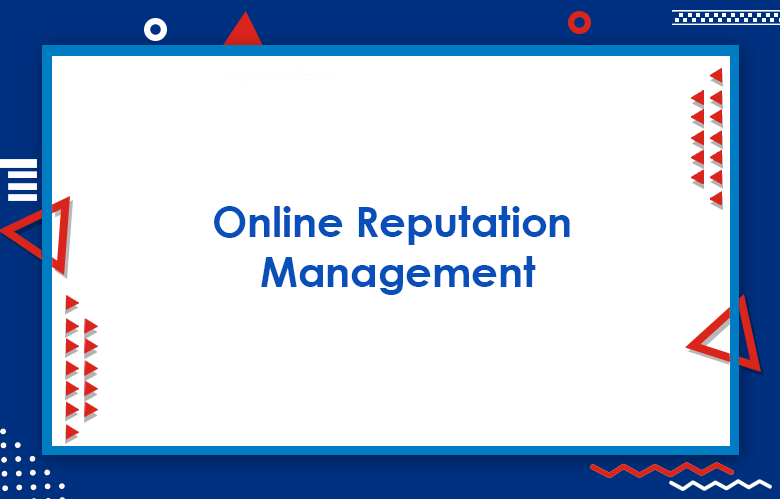Online Reputation Management for Local Political Campaigns, Political Parties and Politicians

Online Reputation Management for Local Political Campaigns: This may sound like a no-brainer to some of you. After all, doesn’t every politician need this? Don’t they need to cultivate and maintain a good reputation, no matter the online trolling and the Opposition’s heckling? As with most things in life, this too is complicated, but the road to achieving it is simple.
Online Reputation Management for Political Party
It’s all about where the people are, and all the people are online. Online Reputation Management, or ORM, has been in use for a while now, ever since the advent of the Internet and the first online campaign banner went up.
- According to Reputation, “Confirmation bias is our tendency to find, favor, and remember information that already confirms our existing beliefs… Pay considerably less attention to that information that does not support what we already think that we know.”
- Everything a political party does or says adds up to their reputation value
- Confirmation bias plays a keynote role here in that it ‘makes’ people forget the negatives associated with their preferred political party.
- These same people, thus biased, promote all the good things about the said party and leave out (personally and publicly) all the factors that can or might work against their chosen party.
- People’s bias plays a powerful role in which party they choose to support.
Online Reputation Management for Political Campaigns
Much the same can be said about reputation management for political campaigns, the only difference being that staff needs to stay on their feet and be alert for constant changes that will need them to adopt a campaign’s style or strategy.
- Campaigns take advantage of multiple online sources for politicians to gain supporters and funders.
- Monitoring and maintaining their online presence is crucial to keeping campaigns afloat, more so during the heat of election season.
- Negative words, reviews, or search results can prove disheartening. But use those ‘inevitable’ results and twist them to serve your candidate’s campaign. This is one of the most valuable skills a staff member can bring to the political campaign table.
Online Reputation Management for Politicians
Individually, ORM is important for politicians, often on a personal level. All one needs to do is look at how ruinous Donald Trump has proven to be on Twitter to learn how significant personal ORM is.
- On a personal level, it is all about projection. How a politician projects their image online can go a long way in paving the road for any future electoral success.
- Eligibility for holding office’ is a major deciding factor among voters.
- Not all voters are politically savvy enough to analyze every technical detail about the candidate.
- Voters judge what they see in a candidate’s online profiles, especially what they feel afterward.
Content Marketing to make your online presence powerful
This is a mighty sub-field that every ORM staff member needs to pay attention to. There are 3 core ways you can enhance a political party or candidate’s online presence.
Blogging
Not only is it one of the most profitable content marketing options that are still going strong, but regularly posted original content on blogs also leads to improved ORM ratings.
- The better your written content, the more inclined voters approve a politician and add to their repute.
- Those who maintain these blogs need .to add to their list of readers/subscribers consistently
- By posting regularly, you actually get more leads and traffic, which make it easier for search engines to list you on page-one
- There is a lot of ‘noise’ online, so make sure you invest in quality blogging and stay consistent.
E-Mail Marketing
People still rely on email in more ways than one.
- Emailing your potential voter bank is an organic way to increase a candidate’s ORM rating.
- Avoid spamming, i.e., sending too many emails in, say, one month.
- Send quality newsletters that pack simple calls to action, with links provided for convenience.
Personalized Content
No two voters are the same, though many of them have similar tastes.
- Use general data and audience segmentation to craft macro-level personalized content.
- Different content types with varied and specific angles and messages are the way to go about content marketing for ORM.
- Add personal phrases, names, sentences, remarks, and relevant information.
- Target your target audience, so to speak. Get them involved via dynamic content and beautiful visuals.
Social Media Monitoring for Politician
This is a crucial ‘winners move’ to bear in mind, especially where ORM is involved.
- Public perception is everything during election season and in the days leading up to it.
- Keeping an eye on how people view and talk about a politician online can help a candidate’s staff work on new strategies that adapt to this ever-changing online flow.
- Queries: set some online and filter them by sources, language, and location
- Use ‘Sentiment Analyses’ to understand how your candidate is being favored online.
- Rope in influencers
- Engage with voters online, potential and otherwise
- See how the opposition is faring, and observe what they are doing right.
- Avoid fake news like the plague, or rather, COVID-19.
Track negative stories and reviews
This is an obvious element present in nearly all ORM strategies.
- Tracking negative opinions, tweets, and comments about your candidate is not a passive task.
- You will need to promptly replace those negative outlooks with positive ones of your own
- Countering is key, and you do that by engaging with online audiences and being polite, classy, and transparent with them.
Suppress negative news and search engine results
This is not as ‘illegal’ as it sounds. Suppressing negative reviews is possible if the negative reviews in question unfairly target a political candidate.
- You can submit legal complaints to Google, only if you know and believe that a negative online opinion about a politician is wrong or fake.
- In genuine grievances, the best you can do is engage with that person and see how best you can turn their opinion around.
Removal of inappropriate Social Media posts
This is fast becoming a ‘bad trend,’ in that people post all sorts of inappropriate content to cater to the meme-hungry community. You can manage these using different methods.
- Communicate openly and calmly with the source of these inappropriate content; channels, pages, accounts
- Submit complaints to the right authorities without ‘beating the bee’s nest,’ so to speak.
- Counter such posts with positive ones and post them in apt places, with good timing
- Ensure your positive versions reach all the right audiences, especially those who are already familiar with the negative ones.
Conclusion
Online Reputation Management may seem like a circus at first, what with so much happening so quickly and never ceasing. You do not need a break from ORM; what you need is a breakthrough. Set priorities, and work smart instead of merely hard. Target all the right audiences, and remember that you are engaged in a conversation, not a negotiation with online users, i.e., voters, people, human beings.



